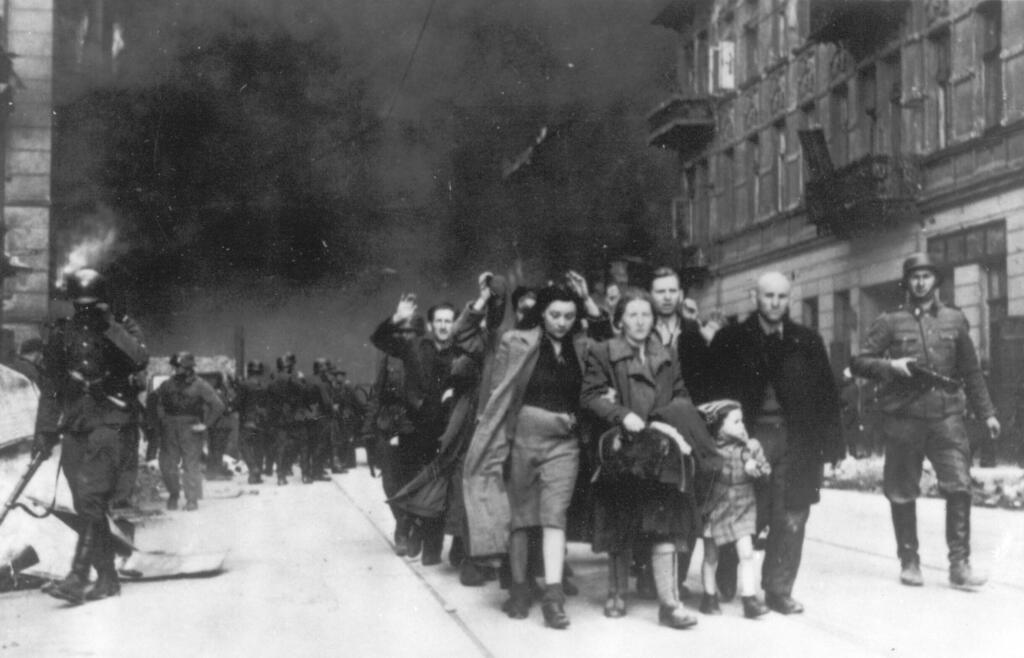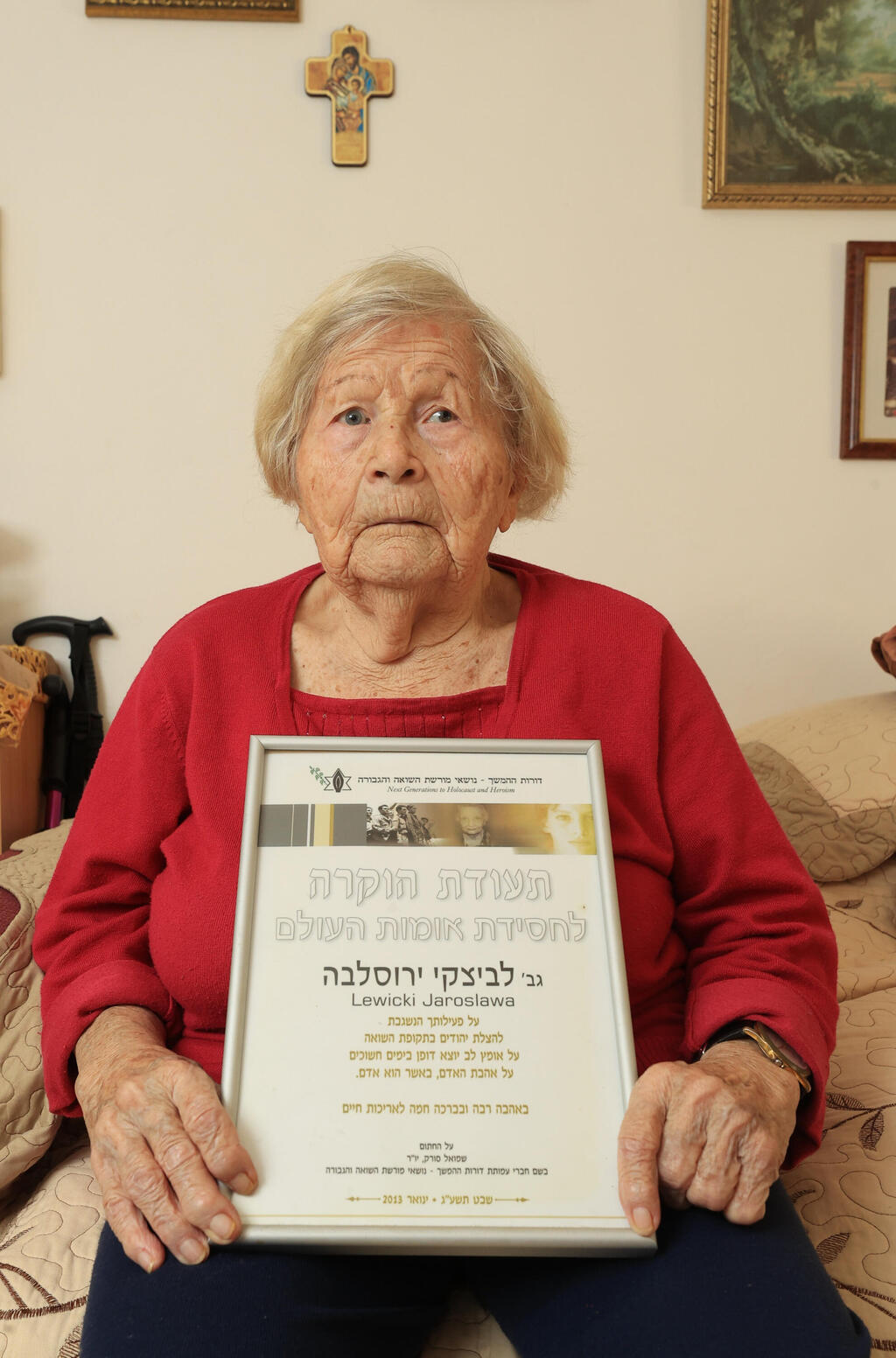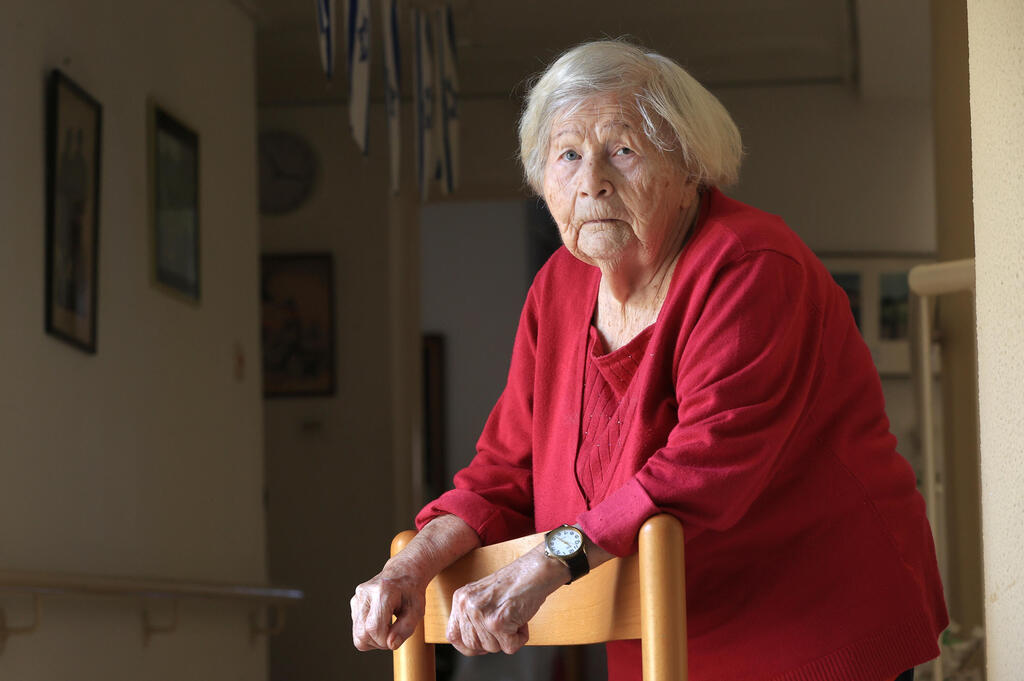Getting your Trinity Audio player ready...
Earlier this month, Viktor Melnik, who together with his Ukrainian family saved 22 Jews during World War II, passed away.
Melnik, 94, who was buried in the northern Israeli city Migdal HaEmek where he resided, was named during his life by the State of Israel “Righteous Among the Nations” — an honorific used to describe non-Jews who risked their lives during the Holocaust to save Jews from extermination by the Nazis for altruistic reasons.
After his departure, there remains only one living Righteous Among the Nations in Israel — 87-year-old Jarosława Lewicka from Haifa.
Ynet sat down with Lewicka for a moving interview in which she recounts how she would sneak food to her Jewish friends in the ghetto as a six-year-old girl, and explains why she loves living in Israel.
Living in an assisted living residence in the northern seaside city, the buoyant pensioner says that fear has never played a role in her life.
“As a kid, I snuck food into the ghetto and never feared I’d get caught,” she says. “I wanted to give the Jews something to eat, especially after all the horrors they’ve been through over there.”
Lewicka was born in 1935 in Złoczew, a small town in southwestern Poland, where she lived with her grandfather Aleksander and her mother Katarzyna.
Her grandfather, she recounts as her eyes glow with pride, had many Jewish friends and he felt a need, and even an obligation, to help them during World War II.
"After the occupation of Złoczew in July 1941, my grandfather began to help his Jewish friends," she says. "The Germans restricted their movement, forbade them to buy food and seized their homes. Grandfather provided them with food and medicine. He did it with me, his granddaughter."
Jarosława acted as a runner for her grandfather, smuggling goods to his Jewish friends without arousing the Ukrainian guards’ suspicion.
3 View gallery


Polish Jews are led away for deportation by German SS soldiers during the destruction of the Warsaw Ghetto
(Photo: AP)
When Złoczew’s Jews were forced into a closed ghetto in December 1942, the family continued to help them until the extermination of the town’s Jewish community in April 1943.
Jarosława would enter the ghetto with her school bag, dodging German and Ukrainian guards, to deliver food, endangering herself and her family, which also provided food to a group of 25 Jews who hid in the basement of a decrepit, small house.
"It was important to me to bring food to the children there," she says.
"In the small school bag, I put bread and potatoes, among other things. There was a candy factory in the ghetto, so I would take some on the way back.
I also had a Jewish friend whom I would give my clothes before she was deported to the ghetto. I was not afraid of anything. My Jewish friends had nothing to eat, so it was important to me to take care of them.
My grandfather would carry a lot of food on his shoulders. When we got to the ghetto area, we would plan my entry route. The need to help the Jews for me was greater than the fear of getting caught. That's how we did it for about two years."
Two Jewish children also lived in the family home, Rishard Feiring and Yoram (Yuri) Meron (Shenkar) who both survived the Holocaust.
After the war, Jarosława graduated from high school in 1952 and later became a nurse.
3 View gallery


Lewicka showcases her Righteous Among the Nations certificate
(Photo: Elad Gershgorn)
In 1989, she was invited to Israel by Avraham Shapira, a Jewish man whom she helped during the war. That same year, Shapira and another survivor named Israel Fenster asked Jarosława and her family to be recognized as Righteous Among the Nations.
She received Israeli citizenship in 1995, as well as a pension and residence in Haifa.
"It was a great honor for my family," Jarosława says. "It was obvious to us that we would help the Jews.
I'm happy to be here, in Israel, at the age of 87. I don't lack anything, it's a special country. When I arrived in Israel in 1989, they told me I'd get [two-room apartment]. They couldn't find one for me, so I stayed here, in this room, and I'm having fun and it's good for me. Everyone here is always together.
I immigrated to Israel following two Jews I saved together with my family. The Righteous Among the Nations, many of whom are no longer alive, are true heroes."
Gershon Pinchevski, a guide at the International School for Holocaust Studies at Yad Vashem Holocaust Museum, stresses the importance of immortalizing Lewicka's heroic story.
"Jarosława’s actions, a little girl, only six years old, brought many Jews hope to live," he says.
"She would sneak into the ghetto and heroically bring food to the Jews there. We are left with the last living Righteous Among the Nations in Israel. She is a true hero, and it is important that everyone hears her story."


